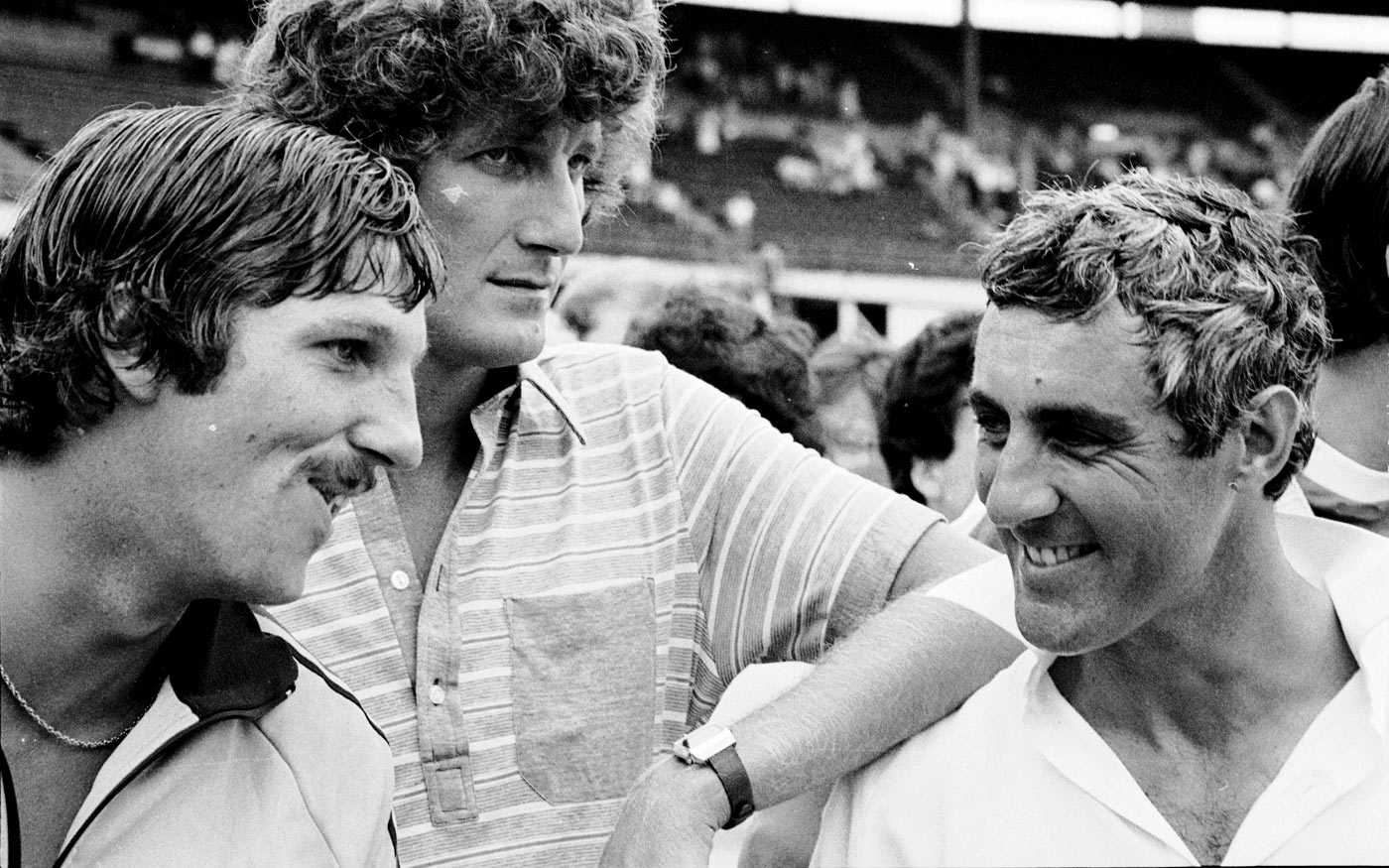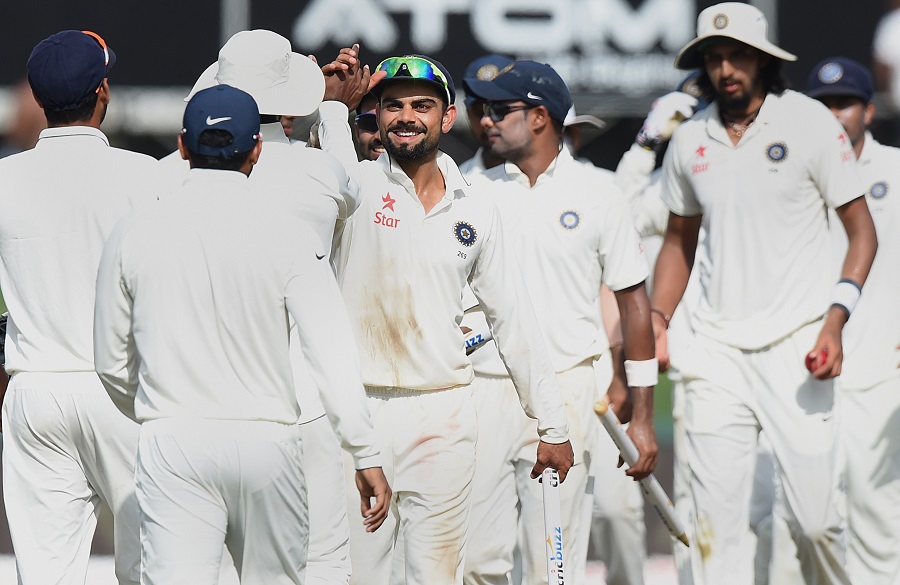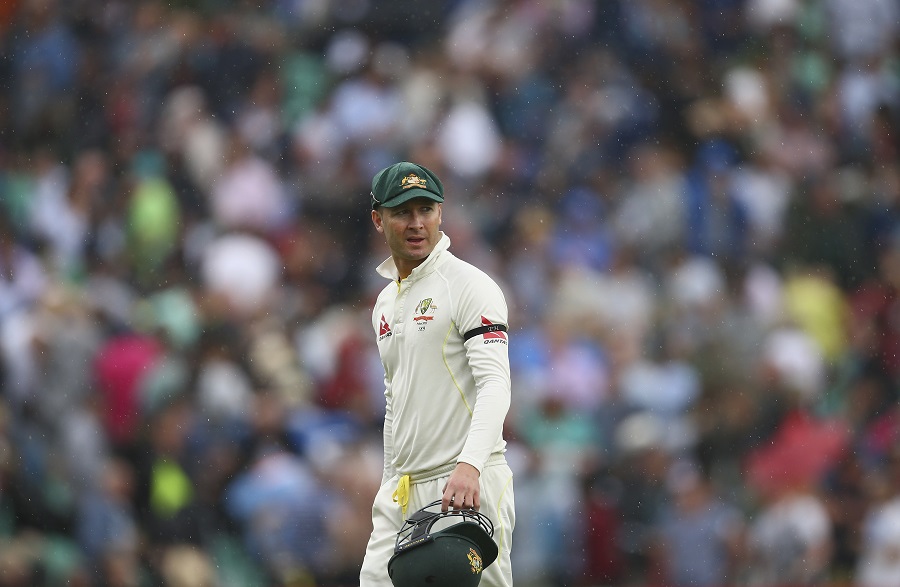 Mike Brearley was fortunate to have captained England when Botham and Willis were arguably at their best © Getty Images
Mike Brearley was fortunate to have captained England when Botham and Willis were arguably at their best © Getty ImagesHow often have you heard "captaincy" being applauded by professional observers? "Great captaincy", they say. Or "lacklustre captaincy". Mahendra Singh Dhoni has experience of both types of criticism.
The entire concept is bogus. Have you ever heard of a captain being criticised when his team wins? Or have you heard it said, "We saw some superb captaincy from Clarke today but Australia were just not good enough"? No, when Australia lose, it is the other captain who did well. More consequentially, can you think of a good captain of an inferior team beating a better side purely because of captaincy?
Captaincy seems to be a concept by writers for writers. It exists not because cricket is played but because cricket is written about and argued about. There is a difference between noting the mere existence of a captain as the person who decides bowling changes and field settings, and captaincy as a full-fledged art consequential to the game. It is the latter that is bogus. Every time a captain puts a third slip in and a catch goes there, it doesn't amount to "great captaincy". Since a field is set every over, it's just one choice that worked, among many dozens of choices that didn't.
Historically captaincy has also had social significance. The captain had to be someone from a good background. Who are his parents? What social class does he come from? Which university did he go to? Will he look plausible when dignitaries visit? Until 1952, the captain of England had to be an amateur (someone who could afford to play cricket for fun, not as a job, because he had other sources of income). That year, Len Hutton became the first professional cricketer to captain England, 75 years after England first played a Test. As Osman Samiuddin notes in his history of Pakistan cricket, early Pakistan captains were chosen for their Oxbridge pedigree. Today these colonial markers are no longer fashionable. In their place we have vague notions of "leadership" and other such management-speak.
Mike Brearley (Cambridge University and Middlesex) captained England in 31 of his 39 Tests. He made 1442 runs at 22.88 in 66 innings in Test cricket. He played all his innings in the top seven, most frequently as opener.
Brearley did not get picked for England as a specialist batsman alone after the Centenary Test in Melbourne in March 1977. He is Exhibit A for the pro-captaincy set - the most prominent member of the very small set of players who were not good enough to make a Test team with bat or ball, but were picked primarily as captain.
Brearley's reputation rests on his career as captain in Ashes Tests. He led England to two Ashes wins at home, in 1977 and 1981. He also led England to an Ashes win against a Packer-affected Australia side in Australia. Apart from this, Brearley led England to victory against New Zealand at home, and a Pakistan side (also Packer-depleted) in 1978. Add to this an unconvincing 1-0 win at home against an Indian side that had very little fast bowling (Kapil Dev was still raw in 1979) and the tired remnants of their spin quartet. Sunil Gavaskar nearly brought India level at The Oval in that series, despite Brearley's captaincy.
At first glance, it is an impressive record. But in all those series, England were simply the better side, either because they were playing at home or because their opponents were crippled by defections.
 Indian captains have been termed "aggressive" usually when they've had quality bowlers at their disposal © AFP
Indian captains have been termed "aggressive" usually when they've had quality bowlers at their disposal © AFPWhat happened to England against full-strength opposition in that 1977-81 period? They were thumped 3-0 in three Tests in Australia in 1979-80 under Brearley, lost 1-0 to West Indies at home in 1980 and 2-0 away in 1980-81. Brearley did not make the side in the two series against West Indies. In fact, he never faced the strongest team of his era. Without him, under Ian Botham, England did quite well against West Indies in 1980 when you consider what had happened in 1976 and what was to happen in 1984.
It is not uncommon for England captains to be highly successful in England. England have traditionally been very difficult to beat at home. Brearley's successor Bob Willis won six out of nine Tests in England against much stronger India, Pakistan and New Zealand sides that had Kapil, Imran Khan and Richard Hadlee in their prime. England's only loss under Willis came against New Zealand in Leeds in 1983, after Lance Cairns took ten wickets in the match.
Brearley's impact on the English teams he led is questionable. Would they have won just as well with any captain other than Botham in 1981? Was Brearley's value purely that Botham flourished under him? It's clear that under Brearley, Botham was an extraordinary player. He made seven centuries and took 15 five-wicket hauls in 26 such Tests. But his next best efforts came under Bob Willis, in the 1982-84 period. It is plausible to think that Brearley merely had the benefit of having Botham at his best. Perhaps equally importantly, he had Willis at his peak.
The crucial question about Brearley might be: if he was really such a fantastic captain, why did he continue to pick himself in the XI when it was clear that he wasn't good enough to play at Test level? Can you imagine what would happen if a player with an average of 22 was allowed 39 Tests as a specialist batsman today? Why, think of what happened to Botham in 1980. Poor performances against the best team in the world brought its own pressure. Brearley had no such problems.
The idea that the record of captains depends on the quality of their players is generally accepted. But it is curiously discarded when captaincy itself is discussed. There are, for example, rumblings about Virat Kohli being a more "aggressive" captain compared to Dhoni. There is no basis for thinking this. Given turning tracks and opponents who had little experience of batting on them and no high-quality spinners in their ranks to exploit them, Dhoni's India demolished teams with disdain. West Indies, New Zealand and an Australian team in crisis all answered to this description. When Dhoni had quality bowling, he looked a very aggressive captain and India won handsomely. Just as they did under Rahul Dravid. If India have quality bowling under Kohli, he will be remembered as an "aggressive captain".
Much is made of the fact that India's batting didn't do well in England and Australia under Dhoni in the 2011-12 seasons. But we forget that when India won in England in 2007, India's top seven did not make a single century in the series. It was the bowling, led by Zaheer Khan, that made all the difference. Zaheer's series in England ranks alongside those of McGrath, Warne and Murali in the 21st century. The support he got from RP Singh, Anil Kumble, Sreesanth and Ganguly made it one of India's finest overseas performances ever.
 Michael Clarke: a "tactically astute" leader, but what do his numbers say in away Tests? © Getty Images
Michael Clarke: a "tactically astute" leader, but what do his numbers say in away Tests? © Getty ImagesLet's consider Michael Clarke's record. Clarke is widely regarded as the most tactically astute leader of his generation, but that didn't prevent him from losing 13 out of 28 Tests outside Australia. The only place where Australia have won comfortably under him is the West Indies (where the hosts have won only three out of 17 home Test series against major teams in the 21st century, and lost 11).
Look down the list of captains away from home in the 21st century, and you'll find that some of the most highly regarded captains had losing records - Michael Clarke, Mahela Jayawardene, Nasser Hussain.
All this suggests that captaincy is overrated by observers in cricket. If one were to list the essential cricketing skills for a Test and ODI team from the most important to the least, they would be as follows: fast bowling, spin bowling, allrounders, opening batting, middle-order batting, wicketkeeping, catching, ground fielding, overall fitness, captaincy.
A quality team with a nondescript captain would win way more than a bad team with a "good" captain. This is one of the great features of cricket. Despite being an aristocratic sport, on the field, it is a great leveller. To win, you have to bowl well, bat well and field well. At the highest level, tactics are not a mystery. Every club cricketer knows what the best options (or the best three or four options) are for a given team in a given situation.
Kumble once said of his googly, "They pick it, but they still have to play it." That is what makes a top Test team. The ability to play so well that even when the opposition knows exactly what's coming, they have to play very well to cope.
Perhaps it is better to think of captaincy as one thinks of wicketkeeping. A keeper who makes a lot of mistakes or has bad footwork and is repeatedly caught in bad positions is noticed. Similarly, a keeper who has to keep pulling off brilliant diving takes is also noticed. In the first case, the keeper is poor. In the second, the bowling is poor. Similarly, if a captain is being noticed one way or the other, something is wrong with the team.
No comments:
Post a Comment